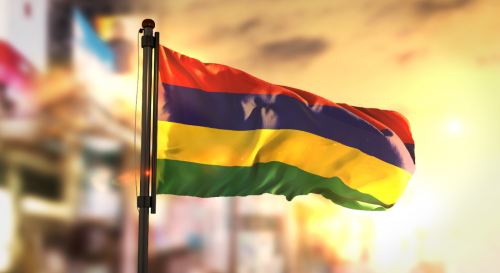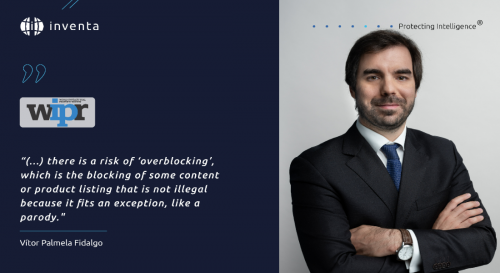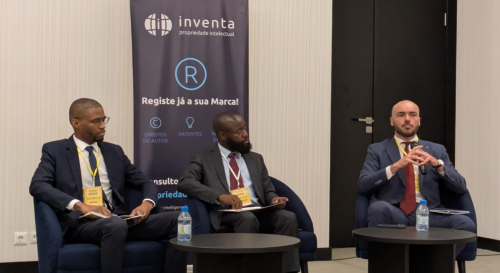
Is IP Education sufficient for African young inventors?
The African economy is losing billions of dollars for not protecting their intellectual property (IP), says Prof. Munashe Furusa, Vice-Chancellor of Africa University, in Zimbabwe. And young inventors are among the most concerned.
The number of inventors from all over the continent that struggle to develop, manufacture, protect and commercialize their inventions, is considerable. Inevitably, it results in an important loss of earnings to the inventors and to the economies.
In a globalized world in which Africa aspires to be a major player after the entry into force of the African Continental Free Trade Area, on 1 January 2021, this reality is a major problem that deserves special attention.
African intellectuals and decision-makers, conscious of it, have implemented projects, with the support of the World Intellectual Property Organization (WIPO), to try to reverse the trend and initiate a change in the continent.
One of them is improving IP education and sharing knowledge.
So, some African universities started to propose IP Education programs to their students. For instance, since 2008, Africa University, in Zimbabwe, proposes a master’s program in IP, in partnership with WIPO, the African Regional Intellectual Property Organization (ARIPO), and with financial support from Japan. Similarly, the University of Yaoundé II, with WIPO, and the African Intellectual Property Organization (OAPI), offers a similar program for French-speaking African students. Further, in South Africa, following an initiative of WIPO, the National Intellectual Property Management Office (NIPMO), with the University of KwaZulu-Natal and the Companies and Intellectual Property Commission (CIPC), hosted recently a free summer school on intellectual property, targeted for students, innovators, researchers, and professionals, including government officials.
Additionally, workshops and forums for young African innovators, creators, and entrepreneurs, are regularly organized across the continent, the most recent being the fourth African Science, Technology and Innovation Forum, held from 1 to 2 March 2022 in Kigali, Rwanda, co-organized with UNESCO, the African Union Commission and the Department of Science and Innovation of South Africa.
These IP education projects are reinforced by incentives for creativity and inventiveness, through the creation and/or participation in competitions. At the regional level, we can mention the Innovation Prize for Africa, the Africa Prize for Engineering Innovation, the Africa Young Innovators for Health Award, and the Kofi Annan Award for Innovation in Africa, among others. The African inventors are also present in international competitions, as, for example, in the WIPO “How does AI work?” competition where an IP team from the Centre for Intellectual Property and Information Technology Law (CIPIT) in Kenya, was selected as one of the winners.
Foundations were also created to support similar initiatives such as the African Science, Technology and Innovation Endowment Fund, launched by the United Nations Economic Commission for Africa (UNECA).
The role of the African universities is also paramount and is not limited to providing IP Education. They can implement projects promoting innovation and IP protection.
Despite all these efforts, and without devaluating all the benefits they bring, which are unquestionable, the results achieved are below the expectations. Indeed, as Mrs. Gwen Mwaba, director at African Export-Import Bank (Afreximbank), observed in November 2021: “Africa has an abundance of ideas, but often does not convert them into viable and profitable businesses, resulting in lost IP”. Thus, the problem remains.
In fact, the achievements obtained to date reveal the extent and importance of this issue. Educating in IP is a primordial step toward an innovative and prosperous economy. But it is far from being sufficient.
The role of governments is essential. The IP legislation in many African countries is unchanged for many years, it has serious loopholes, and it is inadequate to protect the IP efficiently. So, African governments must adopt legislation capable of responding to the new challenges that resulted from the industrial and technological revolutions.
Further, many African National Intellectual Property Offices (IPO) have a serious need for modern equipment, technology, and to enhance the knowledge and skills of their officers. Without it, the IPOs cannot fulfil their assignments, including assisting the youth inventors whenever they look for legal advice.
Finally, African governments must financially support the young inventors. As Ebenezer Olanrewaju, from the Association of Nigerian Inventors, said “If African governments support young innovators across the continent, it will have an immediate turnaround for technology development in Africa.”
The role of the African universities is also paramount and is not limited to providing IP Education. They can implement projects promoting innovation and IP protection. Take the example of the Africa University, in Zimbabwe, which has set up an innovation hub, the i5 hub that provides support to inventors. They can also prepare the students and participate in international prizes, such as CIPIT from Kenya which participated in the WIPO “How does AI work?” competition. As Brian Asingia, the CEO of DreamGalaxy, remarked recently, African universities can be a motor for innovation in Africa if they become more focused on experiential or practical learning.
In conclusion, education in IP has notably extended in the African Continent in the last 20 years. However, to stop the bleeding of the continent's economy, as far as IP rights are concerned, it is necessary for governments to adopt significant measures and for universities to actively participate in the solution.
Territory List
There are no results for your search.
- Africa
- Algeria
- Angola
- Benin
- Botswana
- Burkina Faso
- Burundi
- Cameroon
- Cape Verde
- Central African Republic
- Chad
- Comoros
- Congo (Republic)
- Côte d'Ivoire
- Democratic Republic of the Congo
- Djibouti
- Egypt
- Equatorial Guinea
- Eritrea
- Eswatini (Swaziland)
- Ethiopia
- Gabon
- Gambia
- Ghana
- Guinea
- Guinea-Bissau
- Kenya
- Lesotho
- Liberia
- Libya
- Madagascar
- Malawi
- Mali
- Mauritania
- Mauritius
- Mayotte
- Morocco
- Mozambique
- Namibia
- Niger
- Nigeria
- Réunion
- Rwanda
- Sao Tome and Principe
- Senegal
- Seychelles
- Sierra Leone
- Somalia
- South Africa
- South Sudan
- Sudan
- Tanzania (mainland)
- Togo
- Tunisia
- Uganda
- Western Sahara
- Zambia
- Zanzibar
- Zimbabwe
- Africa (OAPI)
- Africa (ARIPO)
- Other
- East Timor
- Macao
- Maldives
- Portugal
- European Patent (EPO)
- European Union Trademark (EUTM)
- International Trademark (Madrid System)
- Patent Cooperation Treaty (PCT)




